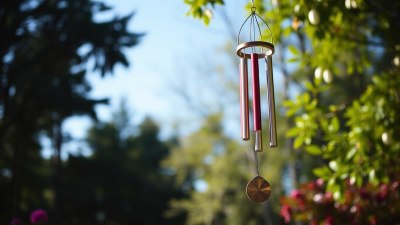How to Convince Yourself That Cold Pool Water is 'Good for Circulation'
Discover the benefits of cold pool water for circulation and how to adjust your mindset for positive effects.

This image was created with the assistance of Freepik
In today's wellness-focused world, there is a growing interest in the benefits of cold water exposure. Many individuals seek out cold pools, whether at spas, in nature, or in fitness centers, with the belief that they promote better circulation. Understanding how cold water affects our circulatory system can help you embrace the experience and appreciate its advantages. This article will explore the science behind cold water's effects on circulation, tips to convince yourself of its benefits, and ways to acclimate to these chilly conditions.
The Science Behind Cold Water and Circulation
Cold water exposure stimulates the circulatory system. When you immerse your body in cold water, several physiological reactions occur to maintain your core temperature. Initially, blood vessels constrict (a process known as vasoconstriction), which helps regulate your body's heat. This reaction, while uncomfortable at first, actually serves to increase blood pressure and enhance circulation to vital organs.
Once you exit the cold water, your body undergoes a process termed vasodilation. This is the widening of blood vessels, which allows for a rush of fresh, oxygen-rich blood to flow through the body as your temperature normalizes. This reaction can enhance your recovery from physical exercise and improve overall cardiovascular health.
Benefits of Cold Water for Circulation
There are numerous benefits associated with cold water immersion, particularly concerning circulation:
- Improved Blood Flow: Cold water therapy can enhance blood circulation, especially in the limbs. This increased flow promotes better oxygen delivery and nutrient absorption in tissues, stimulating recovery.
- Boosted Immune Function: Regular exposure to cold water is associated with a strengthened immune system, leading to fewer illnesses and improved overall health.
- Enhanced Mental Clarity: The shock of cold water can increase alertness, improve focus, and elevate mood, which may indirectly support healthy circulation by maintaining active lifestyles.
- Increased Recovery Rate: Athletes and fitness enthusiasts use cold water immersion as a recovery tool, as it can reduce muscle soreness and inflammation, leading to improved performance and endurance.
Shift Your Mindset: Embracing the Cold
To gain the full benefits of cold pool water for circulation, it’s essential to embrace the experience positively. Here are strategies to help you convince yourself that cold water is indeed beneficial:
- Education: Understanding the science can empower you. Learn about how cold therapy works and the positive effects it has on circulation, recovery, and overall health.
- Positive Affirmations: Before entering the cold water, remind yourself of its benefits. Use positive affirmations such as, “This water is energizing my circulation,” to reframe your perspective.
- Set Realistic Expectations: Accept that the cold may be uncomfortable at first. Set gradual exposure goals, like starting with short dips and progressively increasing your time spent in the water.
- Mindfulness Practices: Incorporate mindfulness or breathing exercises before and during your cold water exposure. This can help center your thoughts and create a more positive experience.
Techniques for Acclimating to Cold Water
Acclimating your body to cold water can ease discomfort and enhance the positive effects on circulation:
- Progressive Exposure: Start with lukewarm water and gradually lower the temperature over time. This approach helps the body adjust naturally.
- Contrast Baths: Alternate between hot and cold water immersion. This stimulates circulation and helps your body become accustomed to temperature changes.
- Cold Showers: Use cold showers as a daily practice to simulate the effects of cold-water immersion without needing a pool. Start with short bursts of cold water and increase duration as you adapt.
- Breath Control: Deep, controlled breathing can help mitigate the initial shock when entering cold water. Focus on taking deep breaths to ease anxiety and stress while you immerse yourself.
Incorporating Cold Water into Your Routine
After you develop a favorable mindset and acclimatize to cold water, consider making it a regular part of your wellness routine:
- Cold Pool Sessions: Schedule time for cold pool sessions a few times per week, combining them with other forms of exercise or recovery activities.
- Group Activities: Join a group or class focused on cold water immersion or cold showers. Social support can boost motivation and make the experience more enjoyable.
- Mindful Reflections: After each cold-water experience, take a moment to reflect on how you feel physically and mentally. Journaling these moments can reinforce positive perceptions and the benefits of cold exposure.
Convincing yourself that cold pool water is good for circulation starts with understanding the science behind its effects and adopting a positive mindset. By embracing the discomfort and gradually acclimating your body to chilly water, you can unlock the multitude of benefits cold water exposure offers. Remember that regular practice can lead to improved circulation, enhanced recovery, and a stronger, more resilient body. Each time you enter the cold water, remind yourself of its advantages, making it a rewarding part of your wellness journey.











